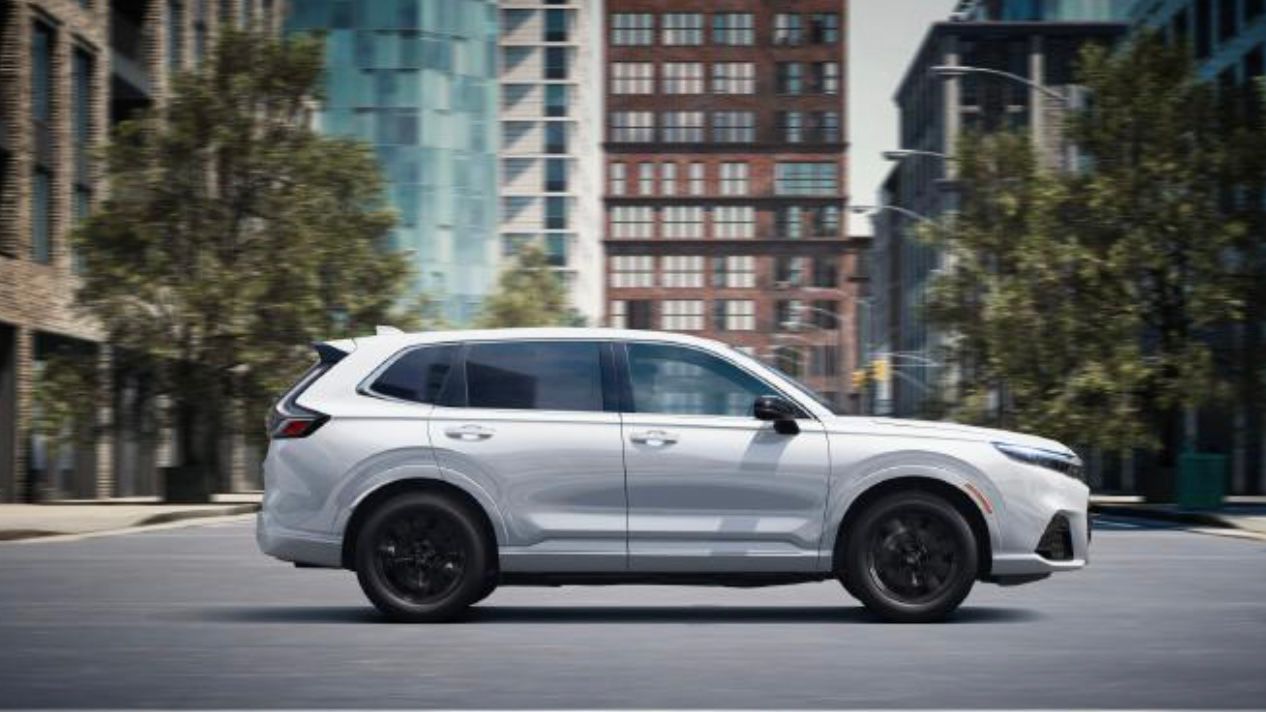The nation’s first plug-in electric hydrogen fuel cell vehicle will be available for lease in California starting in July.
Honda said Wednesday it will make 300 of its CR-V e:FCEVs available with three different lease options, all of which include hydrogen fuel credits starting at $15,000.
First unveiled last year, the CR-V e:FCEV uses Honda’s bestselling compact SUV as the mule for a technology that combines battery electric and hydrogen fuel cell electric propulsion in a single vehicle.
The e:FCEV combines the fast fueling of hydrogen fuel cell technology with more readily accessible EV charging. Honda says it will be able to travel 270 miles, including 29 miles of EV driving, as rated by the U.S. Environmental Protection Agency. The vehicle will include a built-in system for drivers to locate, and navigate to, both types of fuel.
Honda is offering three types of lease. It expects the majority of customers to pick a three-year, 36,000-mile lease for $459 per month that includes $15,000 of hydrogen fuel credits. A six-year lease with 72,000 miles for $389 per month including $30,000 of hydrogen fuel credits and a two-year lease with 60,000 miles for $489 per month including $25,000 in fuel credits are also available.
Each of the leases include 21 days of rental car access through Avis in California, as well as 24/7 roadside assistance and eligibility for the California Clean Air Vehicle sticker that allows single occupants to travel in high-occupancy vehicle lanes.
Honda is leasing the car through 12 of its approved dealerships: six in Southern California, five in the San Francisco Bay Area and one in the Sacramento area.
Similar to many battery electric vehicles already on the market, the Honda CR-V e:FCEV will incorporate a 110-volt power outlet that can be used to run small appliances, portable air conditioners, power tools and camping equipment.
Honda is one of a small group of major automakers developing hydrogen fuel cell electric vehicles. In 2002, it began leasing its FCX fuel cell vehicle to a handful of California drivers. While the FCX and its follow-up, the Clarity FCEV, have been discontinued, Toyota and Hyundai both make fuel cell electrics.
The five-seat CR-V e:FCEV uses Honda’s second generation fuel cell module, which was co-developed with General Motors. The modules are made in Michigan.
In addition to passenger vehicles, Honda plans to use its fuel cell system to power commercial fuel cell vehicles, construction machinery and stationary power stations. In March 2023, the company began testing a stationary fuel cell power station at its North American headquarters in Torrance, Calif., using it to provide emergency backup power to a Honda data center. Honda plans to roll out smlar fuel cell power stations at other Honda facilities and data centers around the world.
Honda is one of several automakers that have announced a specific timeline for phasing out the sale of fossil-fuel-powered vehicles. Honda plans to sell only 100% zero-emission models by 2040. Those vehicles will be a combination of battery electtics, hydrogen fuel cell electrics and those that combine the two like the new CR-V e:FCEV.



